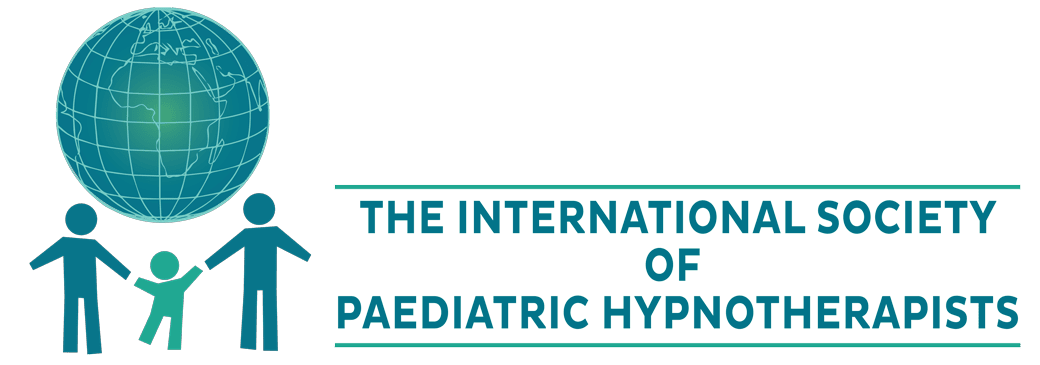What the Research Means for Parents
In recent years, hypnotherapy has been increasingly recognised as a gentle, effective way to help children manage a range of emotional and physical difficulties. While many parents are understandably cautious when considering complementary therapies, especially for their children, a growing body of evidence suggests that hypnosis is not only safe, but also highly effective, particularly in helping children cope with pain and anxiety.
One pivotal study in this area was published in 2006 in the Journal of Developmental & Behavioral Pediatrics. The researchers investigated how hypnosis could help reduce pain and anxiety in children undergoing medical procedures. Their findings offer valuable insights for both health professionals and parents who want to better support children during potentially stressful medical interventions.

What Was Investigated
The 2006 research focused on highly suggestible children, those who are more likely to respond positively to hypnotic suggestion. Children in this group were undergoing various medical procedures, including lumbar punctures and bone marrow aspirations. These procedures can cause considerable pain and anxiety, particularly in paediatric settings.
The children were divided into two groups. One group received hypnosis as part of their preparation and coping strategy, while the other used distraction techniques, such as watching videos or listening to music. The goal was to assess whether hypnosis could provide more substantial pain relief and anxiety reduction than distraction alone.
Key Findings
The results were striking. Children who received hypnosis reported significantly less pain and anxiety during their procedures. These children also appeared calmer and more in control throughout, showing fewer signs of distress. In contrast, those in the distraction group experienced higher levels of discomfort and emotional upset.
Importantly, the benefits of hypnosis extended beyond the immediate experience. Children who had been hypnotised were better able to recall the procedure without fear or trauma, suggesting that hypnosis had helped to frame the experience in a more manageable, less frightening way.
Why This Matters for Parents
Medical procedures can be deeply distressing for children. Whether it is a routine injection or a more serious hospital intervention, the fear and pain associated with these experiences can lead to long-term anxieties. Some children may even develop phobias of needles, doctors, or hospitals as a result.
This study demonstrates that hypnotherapy can offer a powerful alternative. Rather than relying solely on medication or physical distraction, hypnosis works with the child’s own imagination and ability to self-soothe. For highly suggestible children, which many young children naturally are, this approach can provide real relief.
It also gives children a sense of agency. When a child learns how to use their imagination to reduce pain or fear, they begin to feel more in control of their experience. This is especially empowering for children who have had multiple medical procedures or who are dealing with chronic conditions.
“Hypnosis doesn’t take away the medical need, it helps the child face it with greater calm and confidence. That shift in perception can change everything.”
Paul White
What Does Hypnosis Involve?
Parents unfamiliar with hypnotherapy may worry that hypnosis involves a loss of control or consciousness. In fact, clinical hypnosis is a relaxed but focused state of awareness. The child is awake, responsive, and fully in control throughout the process.
In a typical session, the hypnotherapist will guide the child into a state of calm using gentle breathing and imagination exercises. The child might be asked to visualise a safe place, imagine a magical helper, or use metaphor to transform a painful experience into something manageable. These techniques engage the child’s natural creativity and ability to visualise.
Sessions are always age-appropriate, playful, and tailored to the child’s developmental level. For instance, younger children may imagine blowing away pain like bubbles, while older children might rehearse a procedure as if it were a video game they are mastering.
What Should Parents Look For?
If you are considering hypnotherapy for your child, especially in relation to managing medical pain, it is important to choose a therapist trained in paediatric work. Organisations such as the International Society of Paediatric Hypnotherapists (TISPH) offer specialised training that ensures therapists understand child development, emotional regulation, and safeguarding practices.
A good therapist will also involve you as a parent in the process, providing you with language, strategies, and tools to support your child before and after the session. Hypnotherapy is most effective when it is integrated into the child’s broader support system.
Is Hypnosis Right for Every Child?
The study focused on highly suggestible children, and while most children are naturally more suggestible than adults, some respond more strongly than others. That said, even children who are less overtly suggestible can still benefit from the relaxation and coping techniques used in hypnotherapy.
It’s worth noting that suggestibility is not about gullibility or imagination alone, it’s about a child’s ability to engage with stories, metaphors, and focused attention. Many children, especially those aged 4 to 12, naturally use these tools in play and problem-solving.
Broader Implications
This study adds to a growing body of evidence supporting hypnosis as a therapeutic tool in paediatric care. From managing chronic pain and procedural anxiety to supporting children through dental work or vaccinations, hypnotherapy offers a valuable option for families looking for compassionate, empowering care.
It also aligns with the broader shift in healthcare towards trauma-informed, child-centred approaches. Rather than overriding a child’s experience, hypnosis honours it, and teaches the child how to meet it with strength, calm, and creativity.
In Summary
The 2006 study published in the Journal of Developmental & Behavioral Pediatrics offers a clear message for parents: hypnotherapy can be a safe, effective way to help your child manage pain and anxiety associated with medical procedures. It empowers children by using their imagination, reduces distress, and may even prevent long-term fear responses.
For parents looking for ways to support their child’s emotional wellbeing during medical treatment, hypnosis is well worth considering, especially when delivered by a qualified paediatric specialist. As more research continues to highlight its benefits, hypnosis is becoming an increasingly respected and evidence-based part of modern paediatric care.
Study Reference
Liossi, C., White, P., & Hatira, P. (2006). Randomized clinical trial of local anaesthetic versus a combination of local anaesthetic with self-hypnosis in the management of pediatric procedural pain. Journal of Developmental & Behavioral Pediatrics, 27(5), 399-408. https://journals.lww.com/jrnldbp/Abstract/2006/10000/Randomized_Clinical_Trial_of_Local_Anesthetic.7.aspx
